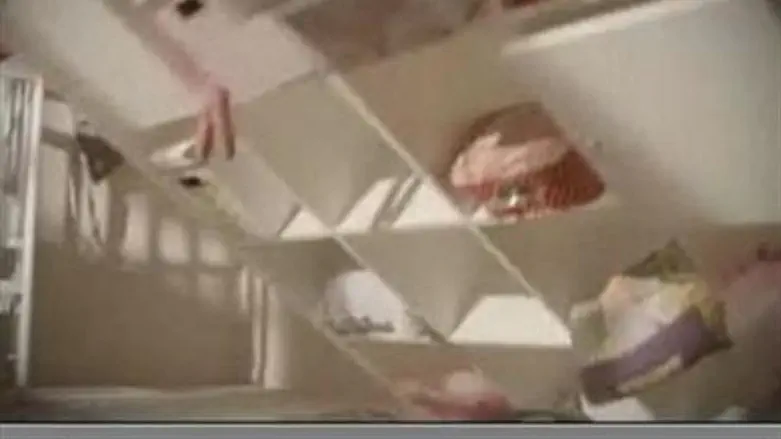
Given that Israel has not had a major earthquake in nearly 84 years, the Ministry of National Infrastructures is waging a campaign for earthquake preparedness. Films of bookshelves crashing down atop baby cribs and detailed instructions are part of it.
In July 1927, the northern Dead Sea area – Israel’s major earthquake-prone area – suffered a major quake that left nearly 300 people dead. Prior to that, the city of Tzfat, in the Galilee, was largely wiped out in 1837 when an earthquake rocked the area; 5,000 people were killed there, and another several hundred in Tiberias.
Earthquake researchers say that statistically, another big quake should be feared in Israel within the coming years – including now. In recent years, the northern Dead Sea region was hit by a 4.4 quake in November 2007, and a 5.3 rocker in February 2004. In terms of statistics and probabilities, however, a larger one is still expected.
The Infrastructures Ministry information campaign is currently running on the internet and other media. “Don’t let an earthquake catch you unready,” it warns threateningly. “Home is not always a safe place. A strong earthquake in Israel is just a question of time, and it is liable to cause the destruction of many homes in Israel. Make sure today that your home meets earthquake readiness standards, and that all family members know how to behave when one hits.”
The Ministry’s website explains that though earthquakes cannot be forecast in advance, “there are a number of ways in which we can prepare for them, prevent loss of life and to significantly reduce property damage.” One way is to make sure that one’s house or apartment building meets earthquake construction standards. In general, buildings built before 1980 do not – and these include, of course, a large number of buildings in many cities and towns throughout Israel. These can be strengthened and fortified, “and the responsibility for such is primarily upon us, the citizens.”
In Judea and Samaria, where most homes have been built since 1980, this particular problem is not acute.
In addition, precautions should be taken to ensure that even homes that do not collapse are earthquake-safe. The Ministry’s website states that one should not have shelves or heavy objects above beds; bookcases, air conditioners and the like should be properly fastened to walls, heavy objects should not be stored high up, and the like. “It is also advisable to have on hand a supply of food and water for emergencies, a first-aid kit, a radio, emergency lighting and baby equipment, as well as copies of essential documents.”
The Ministry also has ideas for family earthquake-drills: “Decide in advance, together with all immediate family members… where your ‘safe place’ during an earthquake is going to be. In an apartment building a safe place could be the Protected Space ("Mamad") or the staircase, and in a one-story home it could be outdoors. Agree on a specific place outdoors where the family should gather after the quake. Make sure that all family members know where the main switches are for electricity, gas and water so that they can turn them off after an earthquake.”
Related Video: Voices TV - Earthquake Drill in Efrat